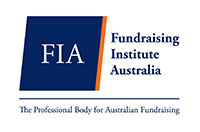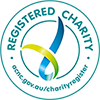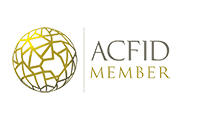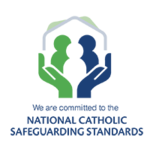| Last Updated: | 18 July 2025 |
| Purpose: | Outlines Mary MacKillop Today’s commitment to ensuring gender equity and diversity in the workplace and programs. |
| Additional Authority: | Australian Council for International Development (ACFID), Department of Foreign Affairs and Trade (DFAT), and State based government legislation, Timor-Leste Employment Statutes. |
| Scope: | Any Representative of Mary MacKillop Today. |
| Responsible Party: | Senior Management (i.e. Program Directors and/or CEO) |
In order to fulfil our mission and vision, Mary MacKillop Today is committed to advancing gender equity and diversity throughout our organisation and in our programs. Mary MacKillop Today will advance gender equity through our programming, our fundraising, our advocacy and our influence on policy.
To fulfil Mary MacKillop Today’s commitment to advancing gender equity and diversity throughout our organisation and in our programs, our work should be guided by the following ‘guiding principles’ and ‘procedures’.
This policy applies across Mary MacKillop Today’s operations, country programs, development projects, and organisational culture. It is binding for all staff, Board members, senior leadership, and contractors, and influences our partnerships both in Australia and internationally.
Diversity is a strength
Mary MacKillop Today celebrates the diversity of its staff, partners and the communities it works with. We operate in multiple contexts – within Australia and overseas – and recognise that everyone brings unique perspectives, experiences, and knowledge because of their diverse identities. We promote diversity both to create a safe and welcoming work environment as well as to strengthen the quality and sensitivity of our work with others. This informs our organisational strategy, communications, decision-making, and how programs and projects are designed and implemented.
Gender equity is everyone’s work
Mary MacKillop Today recognises that working toward the advancement of gender equity requires the involvement of people of all genders; not just those who are disadvantaged (e.g. women, girls, trans and non-binary people). It is important that men, boys, and also women and girls who may not be directly involved in project activities, understand and participate in activities related to the advancement of gender equity: both because they have valuable contributions to make and because when there is any kind of inequity, everyone is disadvantaged.
Furthermore, Mary MacKillop Today understands that advancing gender equity is as much needed within our organisation and partners as within the communities we work with. We undertake programs and projects that identify and address unequal power relations, and marginalisation in the communities we work with, and seek to increase access to resources and participation in decision making for people experiencing marginalisation. However, we also seek to advance gender equity within our organisation and recognise that a variety of strategic approaches and actions are required to promote this.
Mary MacKillop Today recognises that gender norms and hierarchies are constructed by people and systemically privilege some groups over others (sometimes codified in laws and policies). This limits people of all genders and sexualities but often disadvantages particular groups, for example women, girls, transgender and gender non-binary people.
In order to address these disadvantages, rather than treating everyone equally, sometimes extra focus needs to be placed on particular groups of people to ensure that everyone’s access to opportunities is equitable. Therefore, in recognition that women and girls are systematically disadvantaged all over the world, one of Mary MacKillop Today’s five Core Principles is ‘Women at the Heart’.
Twin track approach
Mary MacKillop Today supports many projects that are explicitly focused on supporting women and girls or other groups experiencing marginalisation, however, we recognise that a gender equity and diversity lens is needed in all of the work we do, both within our organisation and in the communities we work with. Therefore, we commit to applying a twin track approach to programming that promotes gender equity and inclusion – by explicitly identifying specific actions for vulnerable people/groups as well as mainstream inclusion.
Context is important
Whilst the pursuit and implementation of gender equity underpins Mary MacKillop Today’s programming approach for effective development outcomes, we respect the diverse beliefs and cultures of the contexts in which we work. We recognise that gender norms and roles, and socially constructed systems that disadvantage people based on their identities, vary across contexts both within and outside of Australia.
To work effectively and sensitively towards the pursuit of equity and inclusion, we need to understand the contexts in which we work, partner with people and organisations who are familiar with those contexts and reflect on our work regularly. Mary MacKillop Today systematically analyses gender relations during assessments, including opportunities and constraints to equal opportunities for people of all genders within the relevant cultural context, and uses this gender analysis to design, implement, monitor and evaluate programs/projects, as well as our organisational practices, that maximise positive impacts on gender equity and minimise potential negative consequences.
Do no harm
With any work that challenges existing norms and power structures, there is a risk of exacerbating inequalities or varying degrees of backlash, including gender-based violence (GBV) and other forms of violence. Mary MacKillop Today commits to a do no harm approach which includes:
- Adopting zero – tolerance to violence against any person based on their gender and providing staff with a clear procedure for reporting and support when GBV is witnessed or disclosed.
- Identifying potential programming risks throughout project cycles, monitoring these risks at every stage, and taking steps to do no harm and mitigate unintended consequences of backlash and gender-based violence, regardless of sectoral focus, especially in fragile contexts.
- Encouraging our partners to do the same in their work.
Mary MacKillop Today commits to advancing gender equity and celebrating diversity in our work through our:
Operations
We commit to:
- Applying a gender and diversity lens to our strategic planning and workforce planning.
Programs and Projects
We commit to:
- Systematically analysing gender relations during program design, including identifying opportunities and constraints to equal opportunities for people of all genders within the relevant cultural context, and use this gender analysis to design and implement programs/projects that maximise positive impacts on gender equity and minimise potential negative consequences.
- Checking our work against a gender-sensitive checklist at various points in each project cycle.
- Reviewing tools such as the gender analysis and checklist on a regular basis to ensure that these are relevant and effective.
Partnership
We commit to:
- Engaging with partners to ensure they have, or are supported to develop, capacity to promote gender equity and diversity.
Evidence and Accountability
We commit to:
- Collecting, analysing and responding to gender disaggregated data to inform the work we do.
- Ensuring program monitoring, evaluations and reviews assess progress towards gender equity and diversity outcomes as well as measuring the relative impact (including unintended negative impacts) on groups who are experiencing marginalisation and use these lessons in ongoing design and management.
- Ensuring evaluations and reviews do no harm, are participatory, and assess progress towards gender equity and diversity outcomes.
- Reviewing indicators and other tools in our monitoring and evaluation frameworks on a regular basis to ensure that these are relevant and effective.
- Conducting, analysing, and reflecting on the findings from, an annual staff and partner survey which focuses on gender equity and diversity.
Human Resource Management and Organisational Culture
We commit to:
- Adequate training and regular reflection to ensure we are aware of our commitment to gender equity and diversity.
- Ensure gender is highlighted during the induction process.
- Build staff and partner capacity and skills in gender equity and diversity. This includes both transformative training as well as ongoing reflection activities on a regular basis.
- Ensuring there is a system for regular communication between the gender focal point(s) and leadership.
- Recruiting and retaining personnel with a commitment to gender equity.
- Ensuring our recruitment processes are equitable and non-discriminatory, and accessible for all genders by including statements in all job advertisements and position descriptions that state people of all genders and sexualities are encouraged to apply.
- Ensuring staff receive adequate training and capacity building to carry out gender equity and diversity activities.
- Where appropriate, working with experts and organisations who specialise in gender equity and diversity.
- Maintaining a culture of inclusive, safe, and protective environments for all, including our employees, volunteers, contractors, partners and the communities and individuals we work with, particularly those most vulnerable to exclusion.
- Ensuring organisational development and human resources processes support staff to reach their full potential in the workplace and are equally rewarded without gender-based discrimination.
- Upholding a zero–tolerance to, and taking all reasonable and proportionate action to eliminate, any forms of violence, discrimination, harassment, abuse or victimisation.
- Ensuring all personnel understand, sign and comply with this policy as well as Mary MacKillop Today’s Code of Conduct and Safeguarding Policy.
- Employment conditions that support the different needs of staff, e.g. flexible work hours, parental leave.
- Providing new parents with a room to pump/express milk/ breastfeed or bottle feed their babies in the workplace, sufficient break time to do so, and a refrigerator to store their breastmilk / formula.
- Where possible, providing child-care during specific activities where parents would otherwise not be able to attend.
Finance and Accountability
We commit to:
- Allocating adequate resources to support the advancement of gender equity and diversity in our operational planning, program and work plans as well as staff training and capacity building.
Fundraising, Communications and Advocacy
We commit to:
- Considering gender equity and diversity in all relevant Mary MacKillop Today fundraising and marketing communications. This includes monitoring the language used in all publications and materials, and those of partners.
Any complaints related to harassment or discrimination on the basis of gender should follow the reporting procedure outlined in the Anti-Discrimination and Harassment Policy (1.1).
Gender: the socially constructed roles, behaviours, attributes and expectations of people based on their gender; this is learned, changes over time, and varies according to cultural, religious, historical and economic factors across and within cultures.
Gender equity: women and men and girls and boys and people with other gender identities enjoying equal status and access to resources and opportunities in society. Achieving gender equity requires the promotion of equal rights, since equality between all people regardless of gender is an integral part of human rights. It also requires an understanding of gender relations. In some cases, it means giving certain groups of people different types and amounts of support than other groups, to ensure they all end up having equal access to resources and opportunities.
Gender identity: a person’s internal sense of being male, female, some combination of male or female, or neither male nor female. A person’s gender identity may be different from their biological and physiological sex and may change over their lifetime.
Diversity: the differences that exist between people due to their characteristics, culture and experiences. The dimensions of diversity could include gender, race, religion, ethnicity, indigeneity, disability, age, displacement, caste, sexuality, sexual orientation, poverty, class, migrant status, refugee or asylum seeker status or socio-economic status. Diversity is a complex issue, as identity aspects can be overlapping, fluid/changing and potentially invisible to others.
Inclusion: Ensuring that all people, particularly those from vulnerable, marginalised and under-represented groups, actively participate in and benefit from Mary MacKillop Today’s operations, programs and partnerships, regardless of their gender, race, religion, ethnicity, indigeneity, disability, age, displacement, caste, sexuality, sexual orientation, poverty, class, migrant status, refugee or asylum seeker status or socio-economic status or any other characteristics.
Intersectionality: Mary MacKillop Today recognising that people’s identities are made up of more aspects than just their gender and that these identities can overlap and intersect to expose people to different types of discrimination and marginalisation. Other characteristics that impact a person’s experience based on their identity can include age, sexual orientation, indigeneity, race, religion, ability, health status, migration status, asylum seeker or refugee status, socio economic status, housing status and many more.
Sexuality: The diverse range of emotional, romantic, and sexual attractions, behaviours, and identities experienced by individuals. Mary MacKillop Today recognizes that gender, and by extension sexuality, is a spectrum and may evolve over time, encompassing a variety of orientations and expressions that do not conform to fixed categories.







